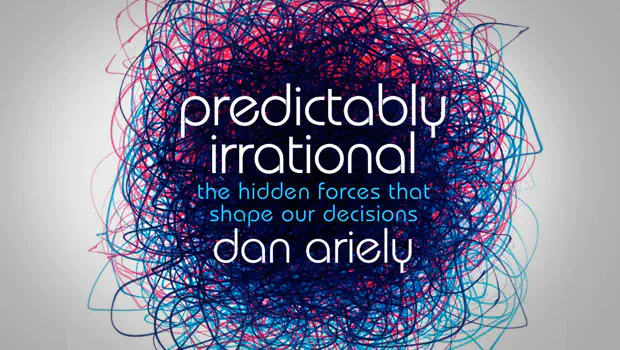Predictably Irrational: The Hidden Forces That Shape Our Decisions
Welcome 👋 We know that first impressions are important, so we’ve populated your new site with some initial content to help you get familiar with everything in no time.
 Dan Ariely
Dan ArielyChapter 4: The Cost of Social Norms
We are happy to do things, but not when we are paid to do them
- We live in a world where two norms co-exist: social norms and market norms. We are generous and willing to give a hand to others when social norms take effect. However, when market norms enter our consideration, the social norms depart. Example: we are so willingly to help others for FREE while resist to reach out if we are PAID to do these things!
- When a social norm collides with market norm, social norm goes away for long time. In other words, social relationships are not easy to reestablish. Once the bloom is off the rose, once a social norm istrumped by a market norm, it rarely return
- Today, companies are trying to create social norms with employees and customers. Social rewards strongly motivate behavior, and one of the least used in corporate life is the encouragement of social rewards and reputation. How much work
- If corporations started thinking in terms of social norms, they would realize that these norms build loyalty and, more important, make people want to extend themselves to the degree that corporations need today: to be flexible, concerned, and willing to pitch in. That’s what a social relationshop delivers.- Money, as it turns out, is very often the most expensive way to motivate people. Social norms are not only cheaper, but oftern more effective as well.
Chapter 6: Influence of arousal
- Looking from one emotional state to another is impossible. We cannot predict what will be our reactions in passionate state (e.g., sexual arousal) when we are calm enough. It is essential to learn to bridge this gap in making decisions of our lives.
- We need to explore two sides of ourselves; we need to see how the gap between the hot and cold states benefits our lives, and where it leads us astray.
Chapter 7: The problem of procrastination and self-control
- Giving up on our long-term goals for immediate gratification, my firiends, is procrastination.
- Resisting temptation and instilling self-control are our general goals. Repeatedly failing to achieve them is a source of much of our misery.
- A dictatorial treatment on us is a good choice to combat procrastination.
- Simplification is one mark of real genius.